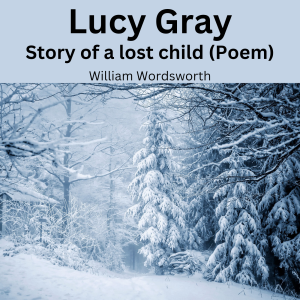Lines from the Deserted Village
Lines from the Deserted Village: Captivating Words That Echo Nostalgia.
Introduction:
The deserted village stands as a haunting reminder of a bygone era, its dilapidated houses and empty streets whispering tales of a lost community.
Within its forsaken walls lie lines of poetry that capture the essence of its melancholic beauty.
Join us on a journey through the verses of Oliver Goldsmith’s “The Deserted Village” and immerse yourself in the poignant emotions they convey.
Verse 1:
“Sweet Auburn, loveliest village of the plain, Where health and plenty cheered the laboring swain.”
These opening lines paint a picture of a once-thriving village, teeming with prosperity and contentment.
The mere mention of Auburn evokes a sense of charm and tranquility, transporting us to a time when the village was alive with the joys of rural life.
Verse 2:
“Far, far away, thy children leave the land, Ill-fated, sinking in the southern main.”
Here, Goldsmith laments the plight of the villagers who have been forced to leave their homeland, seeking a better life overseas.
With tearful farewells, the community disbands, scattering like autumn leaves, torn apart by emigration’s cruel embrace.
Verse 3:
“And seats of bliss that soothed my youthful mind, Gone are they, but what doth their loss avail?”
Whispered echoes evoke cherished memories, transporting me to a realm of solace and joy, where happiness bloomed effortlessly.
The village’s decline has rendered these cherished memories mere relics, reminding us of the ephemeral nature of human existence.
Conclusion:
Through the lines of “The Deserted Village,” Goldsmith immortalizes the beauty and tragedy of a forgotten community.
Each verse evokes a sense of longing and nostalgia, transporting readers to a time when life thrived within the village’s boundaries.
It is through these captivating words that we can relive the past and appreciate the enduring power of poetry to encapsulate the human experience.
The Theme Of The Poem
Question: Discuss the themes presented in the poem “The Deserted Village” by Oliver Goldsmith.
Answer: In “The Deserted Village,” Oliver Goldsmith explores several prominent themes. Here are three key themes from the poem:
1. Rural Decay and Displacement: The poem laments the decline of the idyllic village of Auburn and the displacement of its inhabitants.
Goldsmith portrays the adverse effects of societal changes, such as the enclosure of common lands and the allure of city life, which lead to the abandonment of the village.
The theme of rural decay highlights the loss of community, tradition, and connection to nature.
2. Nostalgia and Loss: Goldsmith evokes a sense of nostalgia throughout the poem, mourning the loss of Auburn’s past glory.
He reminisces about the village’s happier times, its harmonious community, and the simplicity of rural life.
The theme of nostalgia serves to emphasize the bittersweet nature of progress and the value of cherished memories.
3. Critique of Materialism and Urbanization: Goldsmith critiques the pursuit of wealth and materialism at the expense of human relationships and communal values.
He portrays the negative consequences of industrialization and urbanization, where people become disconnected from nature and each other.
The poem urges society to reflect on the true meaning of prosperity and the potential pitfalls of relentless progress.
These themes intertwine to offer social commentary on the impact of societal changes on rural communities and the importance of preserving human connections and a sense of place amidst rapid transformations.


